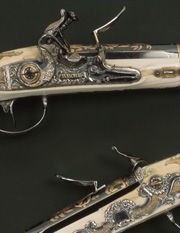War and Redemption

Columbia University's Collegium Musicum presents its fall 2008 concert: War and Redemption.
Music Director, Amber Youell
Program
- Eile mich, Gott, zu erretten - Kleine geistliche Konzerte, Teil 1
- Suzanne Knittel
- Verleih uns Frieden/Gib unsern Fürsten - Geistliche Chormusik
- Unser keiner lebet ihm selber - Geistliche Chormusik
- Es ist erschienen - Geistliche Chormusik
- Herr, auf dich traue ich - Geistliche Chormusik
- Wann unsere Augen schlafen ein - Kleine geistliche Konzerte
- Gloria Makino, Kaveh Niazi
- Wohl dem, der nicht wandelt - Kleine geistliche Konzerte
- Ruth Weiss, Peter Robertson
- Erhöre mich, wenn ich rufe - Kleine geistliche Konzerte
- Rebecca Gordon, Anneke Dunbar-Gronke
- O primavera - Il prima libro dei madrigali
- O dolcezza - Il prima libro dei madrigali
- D'orrida selce alpina - Il prima libro dei madrigali
- Feritevi, ferite - Il prima libro dei madrigali
- O Herr, hilf - Kleine geistliche Konzerte
- Brigitte Reina-Ortiz, Hannah Clancy, Micki Kaufman
- Nun komm, der Heiden Heiland - Kleine geistliche Konzerte
- Kate Soper, Juliette Forshaw, Kevin Findlan, Ray Weisbond
- Rorate coeli desuper - Kleine geistliche Konzerte
- Kasia Borowiec, Naoko Masui, Michael Shaw
- Die mit Tränen säen - Geistliche Chormusik
- Also hat die Welt geliebt - Geistliche Chormusik
- So fahr ich hin - Geistliche Chormusik
- Ich weiß, daß mein Erlöser lebt - Geistliche Chormusik
- Louise Chernosky, harpsichord
Program Notes
The Thirty-Years War (1618-1648) was one of the bloodiest and most divisive in European history. Though beginning as a regional, religious war, it gradually expanded into a pan-European, political conflict. The German states lost almost a third of their population during the course of the war, plagued additionally by famine and disease. Although Heinrich Schütz fled to Denmark to escape the ravages of the war, its effects seem to permeate his composition. Schütz is often considered the leading composer in the early German baroque, one of several composers who helped transport the Italian baroque style to Germany after his studies in Venice with Giovanni Gabrieli. His music features a wide vocabulary of standard seconda prattica techniques, but the overall effect is strikingly unique. Our concert tonight features music from: his first publication, Il primo libro di madrigali (1611), completed at the end of his Italian apprenticeship; the first part of the Kleine geistliche Konzerte (1636), a collection of small ensembles written for the Dresden Kapelle; and the Geistliche Chormusik (1648), completed in the last year of the war. The Geistliche Chormusik were given continuo parts for publication but were originally conceived as a cappella pieces, as we will perform them tonight.
This semester the Collegium Musicum explored Schütz’s music, not ostensibly about war, in the context of a worn-torn land and people. The connection between war and music is most obvious in the case of the Kleine geistliche Konzerte, whose small performance forces are a direct result of the Dresden Kapelle’s waning wartime budget. Some pieces, like Feritevi, ferite, written in Italy before war broke out, utilize a self-conscious concitatomilitaristic style. Artillery-like note repetitions evocative of the concitato style feature prominently in Verleih uns Frieden. Warlike fanfares (often led by the tenors) abound.Other pieces, like Die mit Tränen, contemplate the notion of peace or redemption in death using lilting triple-meter interruptions and chiaroscuro contrasts. Metrical ambiguity and textual displacement create almost irreverent effects in pieces like Also hat Gott die Welt geliebt. The final piece in the program, Ich weiß, daß mein Erlöser lebt, sets a famous Bible passage in a surprisingly aggressive manner, leading one to wonder whether the singing of relgious music during a time of religious strife like the Thirty Years’ War could be considered an act of war.
Tonight’s concert is designed as an imagining of individual and group subjectivity during a time of war, contrasting ensemble size, mood, and theme. The program begins with the quasi-theatrical solo Eile mich Gott zu erretten, which leads into a communal call for peace in Verleih uns Frieden. The madrigals provide a brief respite, a flashback to a time of youth and peace—when battles were a matter of love. The latter part of the program features music in which peace equates with death, and gentle texts are set with fierce music. Our exploration finds war and redemption to be intimately entwined in Schütz’s music.
Ensemble
Soprano I
Kasia Borowiec
Hannah Clancy
Suzanne Knittel
Gloria Makinos
Brigitte Reina-Ortiz
Soprano II
Carolina Azar
Juliette Forshaw
Emelyn Lih
Ehi Oviasu
Ruth Weiss
Kate Soper
Alto
Anneke Dunbar-Gronke
Emily Lih
Rebecca Gordon
Dilini Lankachandra
Naoko Masui
Tenor
Kevin Findlan
Timothy Fingleton
Micki Kaufman
Sean Parr
Peter Robertson
Bass
Robert Hanning
Coleman Moore
Kaveh Niazi
Michael Shaw
Ray Weisbond
with Louise Chernosky, harpsichord, Ich weiß, daß mein Erlöser lebt
